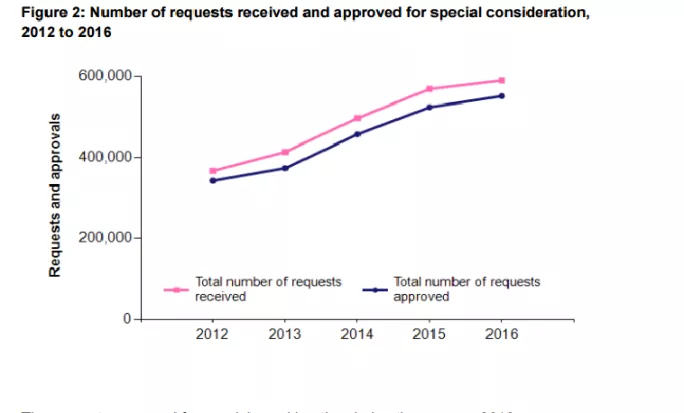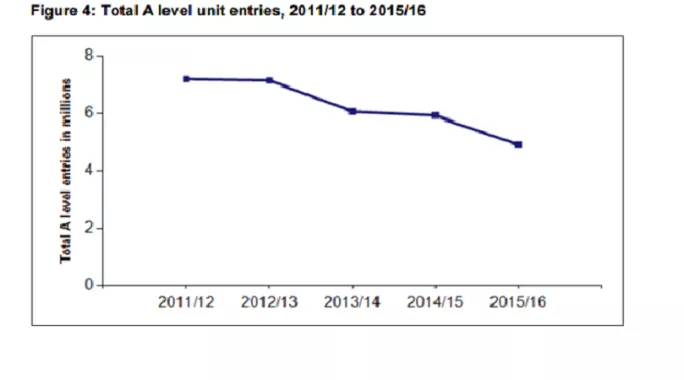Flooding, injury and illness led to a record number of GCSE and A-level papers being given extra marks because of exceptional circumstances this year.
Figures published by the exams watchdog Ofqual today show that the number of requests for “special consideration” increased by 4 per cent compared to 2015 and 93 per cent of these requests were approved.
The figures show the number of requests made, rather than the number of candidates affected. Candidates may need to make more than one request and one request may cover several candidates.
Source: Ofqual
GCSE and A-level exam numbers decrease
“This increase in requests could, at least in part, be explained by significant events where entire school cohorts were affected (such as widespread flooding),” the watchdog says.
It adds that the removal of opportunities to re-sit exams had also contributed. Before summer 2014, a candidate planning to take an exam early who was ill could defer taking the exam until the summer. This option is no longer available.
Most of the requests (95 per cent) for special consideration were from candidates who were present, but disadvantaged in some way, for example through having a recent traumatic experience or serious illness.
The increase comes despite a 6 per cent overall decrease in the number of exams taken. It means that 4 per cent of all scripts were given extra marks - most commonly 2 per cent of the maximum marks on the paper.
In a separate report Ofqual also revealed that changes to A-levels have caused a drop in entries. The watchdog says that the number of overall entries for A level dropped sharply in 2013/14 because of the removal of January exams.
The fall has continued, with entries for individual units which make up the qualifications dropping from 5.9 million in 2015 to 4.9 million in 2016 - the largest percentage decrease in five years.
Source: Ofqual
The new A and AS qualifications are separate meaning that AS results no longer count towards the A level grade as they did previously, which has led to a drop in entries.
There was also a sharp fall in ‘late entries’ - candidates who had been entered after the original deadline.
GCSE entries have remained relatively stable, with small decreases after changes to the performance tables in autumn 2013 meant only the first entry counted. This has discouraged some schools from entering younger students, said Ofqual.
The number of GCSE entries in 2016 was nearly 17 million - a 1 per cent decrease compared with 2015.







